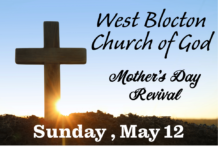When our hearts are heavy, we are wired to want to lean into our deepest connections for support. Sometimes it’s a partner or spouse, a dear friend, or even a therapist – but for believers, we are always not only allowed, but sincerely encouraged, to bear the depths of our hearts with our Savior.
In the history of hymns, certain melodies stand out not only for their musical beauty but also for their profound spiritual resonance. One such hymn is “I Must Tell Jesus,” a timeless composition that has transcended generations, offering solace and strength to countless believers in their moments of both trial and triumph. Delving into the history of this cherished hymn, we uncover not only its origins but also its enduring message that continues to speak to the hearts of Christians worldwide.
Elisha A. Hoffman, though his name might not be at the forefront of discussions about renowned preachers, left an incredible mark on Christian hymnody with a staggering repertoire of nearly 2,000 songs and hymns. Despite limited formal musical education, Hoffman’s innate musicality and fervent devotion to God propelled him to become one of the most prolific hymn writers of his time.
Hoffman’s affinity for music was cultivated in the nurturing environment of his home. Both of his parents possessed pleasant singing voices, and it was a customary practice during family worship sessions — morning and evening — to lift their voices in song. These hymns became the soundtrack of Hoffman’s upbringing, infusing his formative years with the hallowing and refining power of sacred music. The impact was profound, shaping not only his musical sensibilities but also fostering a deep-seated reverence for the spiritual significance of hymnody.
As Hoffman matured into adulthood, his passion for music intersected with his vocation as a minister. Beyond the pulpit and the confines of his study, he frequently ventured into the homes of the less fortunate, engaging in heartfelt conversations with those burdened by sorrow and affliction. It was during one such visit, to the home of a distressed parishioner in the hills near Lebanon, Pennsylvania, that Hoffman witnessed the transformative power of faith in action.
Encountering a mother engulfed in mental anguish, Hoffman sought to console her with verses from the Bible, hoping to uplift her spirit. Yet, despite his best efforts, she seemed unable to find solace. It was then that Hoffman, inspired by a divine prompting, encouraged her to pour out her heart to Jesus, declaring, “You must tell Jesus.” In that moment, a ray of light pierced through the darkness of her despair, and with newfound resolve, she exclaimed, “Yes! I must tell Jesus.” And so, she did, finding peace and comfort in the arms of her Savior.
This poignant encounter left an lasting impression on Hoffman’s heart, igniting within him a creative spark that would give birth to one of his most cherished hymns. As he returned home, still reeling from the profound experience, the words “I must tell Jesus” reverberated in his soul. In the quiet solitude of his study, under the gentle guidance of the Holy Spirit, Hoffman penned the heartfelt lyrics:
“I must tell Jesus all of my trials;
I cannot bear these burdens alone.
In my distress He kindly will help me;
He ever loves and cares for His own.”
These simple yet profound words encapsulated the essence of Christian faith — a humble acknowledgment of human frailty and an unwavering trust in the unfailing love and care of a compassionate Savior. Through the medium of music and poetry, Hoffman gave voice to the universal human experience of seeking solace and strength in the presence of a loving God.
Today, “I Must Tell Jesus” endures as a timeless testament to the power of faith and the profound impact of hymnody on the lives of believers. Its poignant lyrics and soul-stirring melody continue to resonate with Christians around the world, offering comfort, hope, and assurance in the midst of life’s trials and tribulations. In the legacy of Elisha A. Hoffman, we find not only a gifted hymnist but also a faithful servant whose enduring message of faith continues to reverberate across generations.
One of the remarkable aspects of hymnody is its ability to articulate the deepest emotions and convictions of the human heart. Through poetry and melody, hymns like “I Must Tell Jesus” offer a sacred space for believers to express their joys, sorrows, doubts, and praises in the presence of God. In times of uncertainty and adversity, these timeless compositions serve as a source of comfort and encouragement, reminding believers of God’s unwavering love and faithfulness.
Moreover, hymns have the power to foster a sense of unity and community among believers. As congregations join their voices in singing praises to God, they experience a profound sense of fellowship and solidarity. Regardless of individual differences or denominational affiliations, the act of singing together unites worshippers in a shared expression of faith and devotion.
“I Must Tell Jesus” embodies this communal aspect of hymnody, inviting believers to lift their voices in collective prayer and supplication. Through its stirring lyrics and melody, the hymn fosters a sense of solidarity among worshippers, reminding them that they are not alone in their struggles and triumphs. Instead, they are part of a larger spiritual family bound together by their common faith in Christ.
As we reflect on the history of “I Must Tell Jesus” and its enduring significance in Christian worship, we are reminded of the transformative power of hymns to speak to the hearts of believers. Across the centuries, these sacred compositions have served as vessels of divine truth and consolation, offering a glimpse of the transcendent beauty and majesty of God.
“I Must Tell Jesus” stands as a testament to the enduring power of faith and the profound impact of hymnody on the lives of believers. Through its timeless message and stirring melody, it continues to speak to the hearts of Christians around the world, inspiring them to trust in God’s unfailing love and seek refuge in His presence. As we lift our voices in song, may we find solace and strength in the timeless melody of faith.
A big thank you to my sweet “Miss” Anne Murphy who sent me a list of requests, including this one, that I will be covering in the coming weeks!
Do you have a hymn you’d like to know more about? Feel free to send it in to me at savannah.pearce@bibbcommunitymedia.com or by giving me a call. I would love to hear from you!















